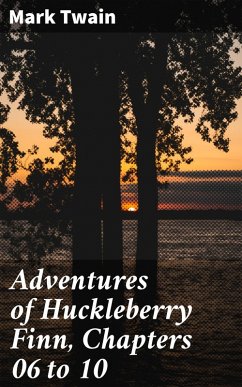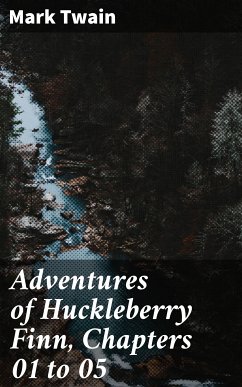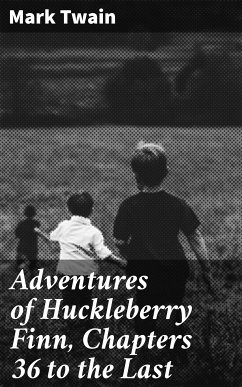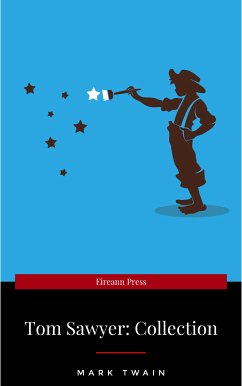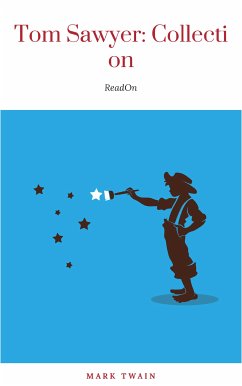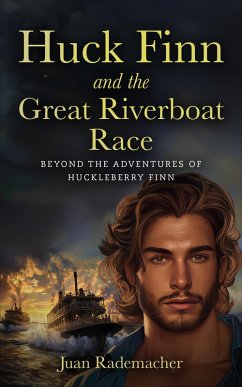
Adventures of Huckleberry Finn, Chapters 11 to 15 (eBook, ePUB)
Journey through the Mississippi: Twain's Literary Exploration
Versandkostenfrei!
Sofort per Download lieferbar
0,49 €
inkl. MwSt.
Weitere Ausgaben:

PAYBACK Punkte
0 °P sammeln!
In the selected chapters of Mark Twain's seminal work, "Adventures of Huckleberry Finn," the narrative explores themes of identity, morality, and societal critique through the eyes of the young protagonist, Huck. Written in a distinctive vernacular style, Twain captures the essence of the American South pre-Civil War, employing regional dialects that lend authenticity to Huck's adventures. These chapters are pivotal as they depict Huck'Äôs evolving perception of right and wrong, particularly as he grapples with the moral dilemmas related to slavery and friendship. Mark Twain, born Samuel Cle...
In the selected chapters of Mark Twain's seminal work, "Adventures of Huckleberry Finn," the narrative explores themes of identity, morality, and societal critique through the eyes of the young protagonist, Huck. Written in a distinctive vernacular style, Twain captures the essence of the American South pre-Civil War, employing regional dialects that lend authenticity to Huck's adventures. These chapters are pivotal as they depict Huck'Äôs evolving perception of right and wrong, particularly as he grapples with the moral dilemmas related to slavery and friendship. Mark Twain, born Samuel Clemens in 1835, was deeply affected by his experiences growing up in a slave-owning region and his subsequent career as a riverboat pilot. His keen observations of human nature and the complexities of social norms greatly informed his writing, particularly in crafting Huck Finn'Äôs adventures. Twain sought to challenge the prevailing attitudes of his time, using satire and humor to reveal the hypocrisy of a society clinging to outdated notions of morality and race. "Adventures of Huckleberry Finn" is highly recommended for readers seeking an insightful and critical engagement with American history and culture. Twain's masterful storytelling not only entertains but also provokes thoughtful reflections on freedom, choice, and the moral landscape of society. These chapters embody the essence of Twain's critique, making this a must-read for anyone interested in classic American literature.
Dieser Download kann aus rechtlichen Gründen nur mit Rechnungsadresse in A, B, BG, CY, CZ, D, DK, EW, E, FIN, F, GR, H, IRL, I, LT, L, LR, M, NL, PL, P, R, S, SLO, SK ausgeliefert werden.





